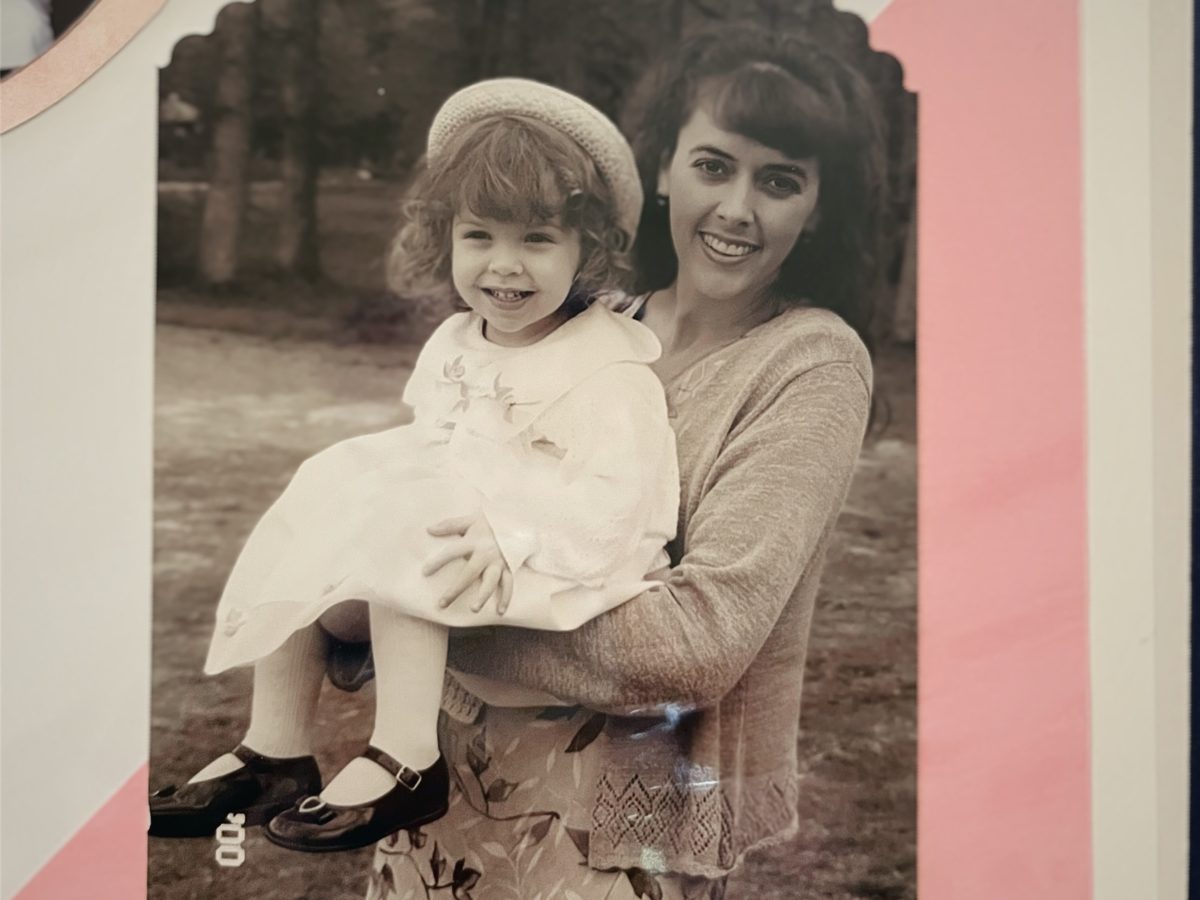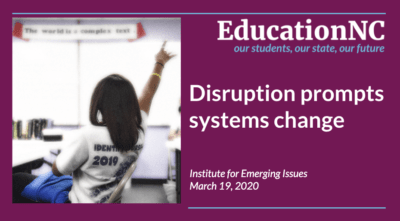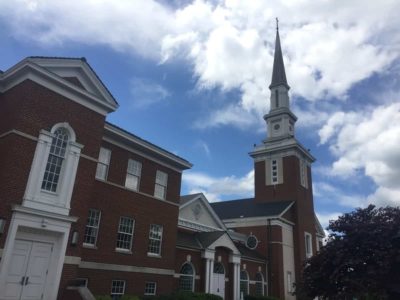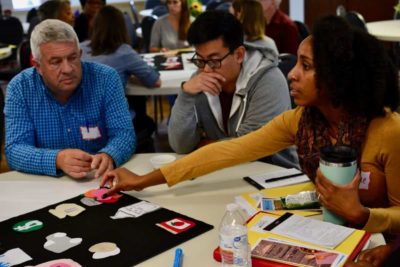
|
|
As a young girl, I loved to ask why.
My parents tell me it started as a cute habit. More often than not, something like a domino effect of “why’s” ensued after each question was answered. Though my parents believed my curiosity was genuine, they were irritated at times by my persistent queries.
All three of us agreed that “I don’t know” was an unsatisfactory answer.
I’m an adult now, and I still love to ask why.
In fact, a large part of my job is to ask why. In the broadest sense, my job is asking questions of the world around me and explaining it well to others. As a reporter covering community colleges and postsecondary access at EdNC, that often looks like learning about things like enrollment, retainment, and student needs and resources.
I also lead EdNC’s faith coverage — a task that certainly requires the curiosity and humility to ask good questions. As a person of faith, I know what it is like to view faith as a source of questions and answers. And as a current M.Div. student at Duke Divinity School, I practice studying individual and communal efforts to find answers and create meaning.
At EdNC, our past faith coverage has largely focused on two things: the adolescent experience of faith, and the nexus of faith spaces and schools as institutional anchors in a community.
Education and religion both play a big role in people’s lives and decision-making.
Schools and colleges provide learning, jobs, and community. In 49 of the state’s 100 counties, an entity providing “educational services” is the top employer, EdNC previously reported, and in 46 of those counties, it is the public school system filling that role. Schools like Clinton High School provide food pantries for students; Fairmont High School art teachers foster self-expression.
Places of worship also help support families and students – like one Elizabeth City church that housed a summer literacy camp, Morganton churches that worked together to support Latina youth, and faith spaces that supported communities following Hurricane Florence.
In North Carolina, about 77% of adults identify as Christians, according to the Pew Research Center’s Religious Landscape Study. That’s compared to 70.6% of adults nationally. Religious North Carolinians of non-Christian faiths make up 3% of the state; 1% are Jewish and less than 1% are Muslim, Buddhist, or Hindu. Fifteen percent identify with no religion in particular, 3% are agnostic, and 2% are atheist.
With more than 10.5 million people living in North Carolina, according to the Census, even 1% of the population is more than 105,500 people – 77% is more than 8,000,000. That’s a lot of people of faith.
Because of that, telling the stories of the role religion plays in communities across the state is important. Last October, I started a personal bimonthly newsletter to highlight the religion stories of the state, North Carolina Religion Roundup, as an effort to showcase all the ways religion is shaping our state and communities. I couldn’t be more excited to listen to and tell some of those stories across the state here at EdNC.
In the coming months, I’ll be learning and writing about how faith is impacting our communities. I’m especially interested in the impact for schools, community colleges, students, and teachers. People and institutions of faith often do support and serve their communities in some pretty incredible, beautiful ways.
That’s where you come in – the people living in, learning in, and worshiping in your community.
I have the curiosity to ask good questions of you: How does your faith show up in your life? How do you see places of worship serving your schools, your community colleges, your communities? Where do you see partnerships between your schools and community colleges and your faith institutions? What do you wish others knew about your faith community? Do you know students who would like to share stories about the role faith plays in their lives?
I will strive to ask good questions with humility – to write about your faith communities and stories with the dignity they deserve.
I have the “why’s” to ask, but you, my fellow North Carolinians, have the answers. If you’re willing, I’d love to hear – and share – them.
I’d love to hear your stories about your faith, place of worship, or work done by your community’s faith institutions. Reach out at hmcclellan@ednc.org.





